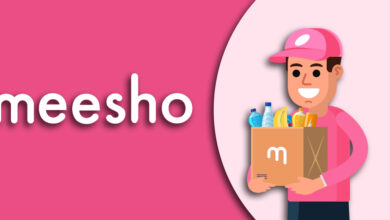Finding a Way Home: Famous Taxi Apps Using GPS Tracking
Smartphone apps have transformed the entire process of hiring a taxi, making it far more streamlined and convenient than ever.
Many of us will know the frustration of calling a firm in the traditional manner and having no idea how long the car would take to arrive, or simply trying to hail one in the street at the end of a long night out.
Uber, of course, has revolutionised things, incorporating GPS tracking in their user-friendly app and enabling customers to monitor their vehicle’s location.
This trend has caught on in a big way, inspiring other entrepreneurs and taxi companies to produce their own apps offering similar services.
Below, we take a look at the different options on the market today, exploring their benefits, function, and more. We’ll consider the advantages and disadvantages of GPS tracking in taxi apps too.
Taxi Apps around the World
Uber
Uber uses employee GPS tracking: when a customer makes their order (entering their name and addresses), the Uber app displays the driver’s suggested route and the estimated time to arrive.
It’s a simple process that has been a big hit around the world, providing people of all ages and walks of life with an accessible taxi-hiring service.
The GPS tracking means there is no need to make a call every couple of minutes to find out where the vehicle is, nor are you required to inform your driver of your destination when you get in.
The GPS tracking means Uber is secure, and provides customers with a picture and name of their driver before the car arrives. The license plate, car make, and model all appear in the app too, so vulnerable customers are at no risk of climbing into the wrong vehicle.
The employee tracking allows Uber to know where their drivers are and where they are going, maximising productivity.
Addison Lee
Addison Lee is a well-known name in the London taxi scene, with more than forty years in the business. They introduced their GPS tracked mobile app nearly a decade ago, though it has evolved considerably since then, focusing on a high-end quality of service.
Like Uber, Addison Lee’s app uses employee tracking to keep the firm and customers informed of drivers’ locations.
This is available for iPhone and Android, and offers fixed prices only, eliminating the risk of having your rate bumped up in heavy traffic or on a whim.
This last factor is another critical reason for the growth of app-based taxi hiring: accountability.
Drivers’ activities are tracked using GPS, and a price is agreed on the app before the journey begins. In the past, drivers may have added a little extra as they saw fit, leaving certain customers with little evidence that they were overcharged.
Their employers would be unable to verify which party was telling the truth in the case of a dispute.
GPS tracking and booking apps protect riders from being swindled out of money, leaving less room for unscrupulous drivers and demanding a more ethical business structure.
Lynk
Lynk is a taxi-hiring app serving customers in Dublin. However, it doesn’t cater to just customers looking for transport around the city for recreation; its chauffeur service is designed for corporate customers too.
Lynk uses GPS tracking to let customers view their vehicle’s location in real-time on the app, watching their driver make their way through local areas until they reach their destination.
The corporate service provides business clients with a more exclusive experience, and allows them to arrive at meetings in style.
The simplicity of the GPS technology and employee tracking enables businesses of all sizes and scales to create their own taxi-hire apps. There is still room for innovation, though the different apps available have gradually added more and more with each new version.
Lynk is a much smaller competitor to the likes of Addison Lee and Uber, but shows how a smaller team can still compete in a thriving industry.
The Advantages and Disadvantages of Taxi Apps
Taxi apps are clearly fulfilling a common need: people depend on public transportation to get around, whether for work, leisure, or emergencies.
GPS technology is driving further innovations and enhancements throughout various areas of industry, beyond just booking taxis. Haulage firms, for example, can use GPS tracking to assess their drivers’ choice of routes, speeds, fuel consumption, and more, boosting productivity significantly.
Factories and warehouses integrate employee GPS tracking to measure how active their employees are, with brands like Amazon known for their strict regulations.
In the world of hiring taxis, though, the same issues related to GPS tracking and apps still apply. As effective as the technology is, it has to be used carefully and responsibly to make sure data is being protected.
Not only could hackers have access to users’ location at any given time, the information submitted to the app is vulnerable as well.
After all, Uber was involved in a major controversy in 2016 when it transpired more than 2 million British customers’ personal information may have been compromised. Names, phone numbers, and email addresses were all at risk, leaving the company with a massive PR nightmare.
People depend on Uber (and its competitors) to use their details in a cautious, ethical manner, just as they do any other business. This incident endangered that trust, though the brand handled it well.
This was not a risk in traditional taxi-hire businesses. A customer would call the booking office, request a vehicle, and no personal details were stored on record.
Today, people need to create accounts with apps, and data on their activities is filed too – enough information to build an accurate idea of the individual’s routine and lifestyle. An app’s security has to be the strongest it can, to reassure users and reduce the threat of hacking.
GPS tracking, though, is such an ideal fit for taxi-hire firms any slight dangers are generally considered worth the risk.
Being able to order a car already in your location, watch its progress in real-time, confirm the driver’s identity, and pay using a stored method is an incredibly convenient solution in today’s busy way of life.
Companies like Uber, Addison Lee, Lynk, and the rest must continue to invest in their security to provide a reliable hiring service.
GPS tracking makes it so simple to monitor their employees’ activities and productivity, this technology’s popularity will only continue to grow and grow.
Source: Bizztor
To Read Daily News Updates, Please visit Inventiva or Subscribe to our Newsletter & Push.




